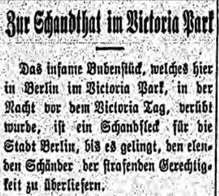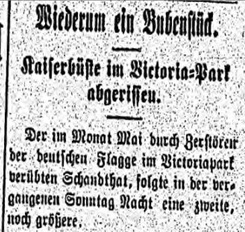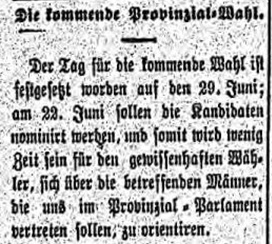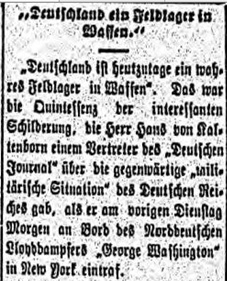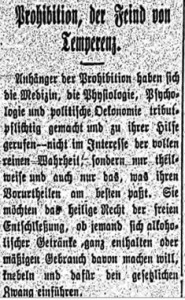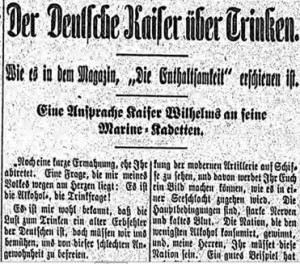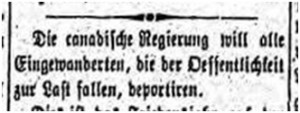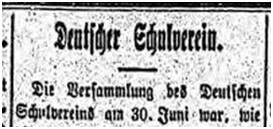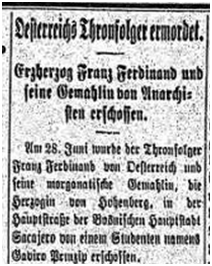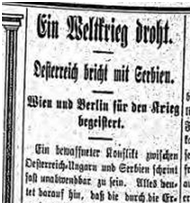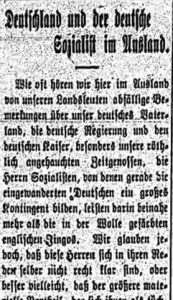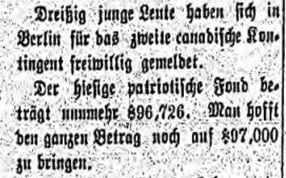In June 1914, on the night before Victoria Day, someone stole the German flag hanging in Berlin near Queen Victoria’s statue. Since a flag represents the pride of the inhabitants and reminds them of their home country, the journalists at the Berliner Journal were upset by this crime and emphasized their hopes that the police would catch the thief. This type of anti-German vandalism was becoming a trend in the area and was followed up by another incident on August 26 when the bust of Kaiser Wilhelm on display in Victoria Park was demolished and thrown into the park’s lake. The German press again reported the shock felt by both the German-Canadian and much of the English population over the actions of these vandals.
(„Zur Schandthat im Victoria Park“, Berliner Journal, 3 June 1914; „Wiederum ein Bubenstück“, Berliner Journal, 26 August 1914)
